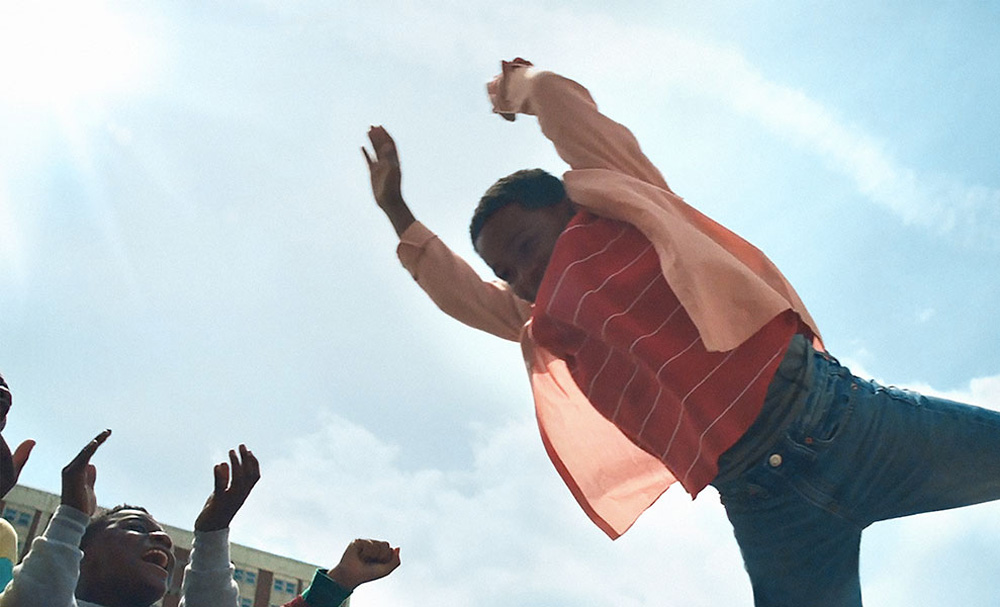”When we moved in, all we wanted was a little color in the house,” Malik’s grandmother Anita (S. Epatha Merkerson) tells the child (Blake Cameron James) about the curtains that line the family’s windows in the Cabrini-Green Public Housing Projects in Chicago in “We Grown Now,” offering a warm orange light when the sun hits them just right. It’s a bit of beauty in an otherwise humble apartment that the boy shares with not only his grandma, but his younger sister and his mother Dolores (Jurnee Smollett) and the people that live in the buildings deserve more than this, with many refugees from places around the U.S where they haven’t felt welcome, but content with what they have when they have a roof over their head and a community around them that looks out for one another. There is never a moment when sound from every corner of the residences aren’t intruding into the Johnsons’ home, but writer/director Minhal Baig is wise to counter it with the elegance of harp strings from Jay Wadley’s stirring score and extends the same notion to a generally muted color palette where the vibrant colors of the clothes costume designer Courtney Wheeler outfits the characters with offer the feeling of life breaking through.
The tragic version of the Cabrini-Green story is refreshingly not the one Baig chooses to tell, but in making it playful and heartfelt she isn’t sugarcoating what happened there when it was slated for demolition seven years after the events of the film, forcing families to scatter once again after feeling as if they had found real neighbors for the first time. Attrition has already set in by 1992 when Malik and his classmate Eric (Gian Knight Ramirez) take mattresses from abandoned apartments to leap on for fun, a practice that Dolores isn’t fond of, but at least her son has found a friend, and she doesn’t plan on moving any time soon when working a low level job in payroll has made her painfully aware of how much others are making, though knowing how many would take the steady work in a heartbeat, she is loathe to ask for a raise as her mother would want. However, a recent shooting death in the area may force their hand, not necessarily out of fear that they’ll be next, but the police presence that it brings where unwarranted searches of their apartment and evacuations can occur and Dolores doesn’t want her kids around that either.
Some of the finest moments of Baig’s breakthrough 2018 drama “Hala,” based on her own experiences of growing up as an American teen in a conservative Pakistani household, came when the filmmaker flirted with poetic realism as her title character could find moments of reverie in the every day when it felt like something that belonged only to her and in leaning into that impulse more as Eric and Malik are eager to have adventures of their own, “We Grown Now” can be truly magical. From staring up at the stars outside to skipping school to visit the Art Institute of Chicago where they can appear as carefree as the characters in Seurat’s “A Sunday on La Grande Jatte,” that hangs on its walls, the two make the world around them a playground and cinematographer Patrick Scola films them with similar aplomb, rotating the camera to properly capture a handstand or taking flight with them when jumping into a pile of mattresses. Still, when the reality of the situation in “We Grown Now” lands, the film becomes transcendent for other reasons when Baig’s carefully calibrated drama reaches an inevitable but powerful conclusion where pulling apart one close-knit relationship can be seen as the start of unraveling an entire social fabric.
“We Grown Now” will screen again at the Toronto Film Fest on September 12th at 9:30 pm at the Scotiabank 4.




